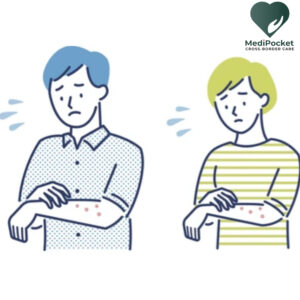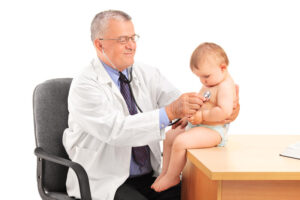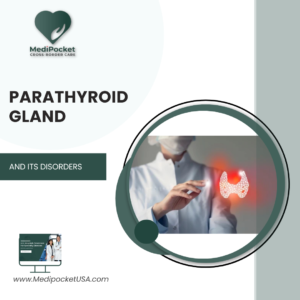Diseases can strike at any time and in any part of the body. Whether it’s the heart or the limbs, humans face a plethora of illnesses throughout their lives. However, some diseases can manifest themselves on the skin. Skin Diseases is what we call it.
What are Skin Diseases?

Skin disease refers to any condition that affects the skin, the body’s largest organ. The skin protects the body by acting as a barrier, regulating body temperature, and providing sensation. Skin diseases range in severity and affect people of all ages, genders, and ethnicity.
Genetics, environmental factors, infections, allergies, and immune system disorders can all contribute to skin diseases. Rashes, itching, redness, swelling, and blisters are some of the symptoms of skin disease, which can vary greatly depending on the type of condition. Skin diseases, in more severe cases, can cause scarring, disfigurement, and even life-threatening complications.
While some can just be temporary and don’t need any medications or treatments, there are some that can be life-threatening and need to be diagnosed as soon as possible. In this possible, we will discuss some of the Skin Diseases that are serious.
Pemphigus Vulgaris (PV)
Pemphigus Vulgaris (PV) is a rare, potentially fatal autoimmune disorder of the skin and mucous membranes. PV occurs when the body’s immune system attacks the cells that hold skin cells together, resulting in painful blistering and erosions.
Pemphigus Vulgaris is thought to be caused by the production of autoantibodies that target desmoglein, a protein that aids in the attachment of skin cells. When these antibodies bind to desmoglein, they weaken the connections between cells, causing fluid-filled blisters and erosions to form.
People of any age can be affected by PV, but it is most commonly diagnosed in middle-aged or older adults. The condition can occur on its own or as a result of certain medications, infections, or other underlying health conditions.
Pemphigus Vulgaris can be difficult to diagnose because the symptoms can be similar to those of other skin conditions. A skin biopsy is typically used to make a diagnosis, in which a small sample of skin is taken for laboratory analysis. To detect the presence of autoantibodies, blood tests may be performed.
Symptoms
- Painful Blisters
- Itching or burning sensations in the affected areas
- Difficulty eating or drinking due to painful mouth sores
- Difficulty speaking or swallowing
- Fever and chills
- Fatigue and weakness
- Rapid weight loss
- Malaise or a general feeling of being unwell
Toxic Epidermal Necrolysis (TEN)
Toxic Epidermal Necrolysis (TEN), also known as Lyell’s syndrome, is a rare and potentially fatal skin condition that causes extensive skin and mucous membrane damage. Stevens-Johnson syndrome (SJS), a similar condition that affects a smaller area of the skin, is considered a severe form of TEN.
TEN is most commonly caused by an adverse drug reaction, but it can also be caused by infections, autoimmune disorders, or cancer. The condition typically manifests itself within 1-3 weeks of beginning a new medication, and the risk increases with prolonged use or higher doses.
Infections, sepsis, dehydration, electrolyte imbalances, and multi-organ failure are all possible complications of TEN. The mortality rate for TEN is estimated to be around 30%, though this can vary depending on the severity of the condition and the speed with which treatment is administered.
Symptoms
- Flu-like symptoms
- Blisters
- Skin rash
- Peeling skin
- Mucous Membrane involvement
- Vision problems
- Difficulty breathing
Steven-Johnson Syndrome (SJS)
Stevens-Johnson syndrome (SJS) is a rare and potentially fatal skin condition caused by an allergic reaction to medication or an infection. SJS is characterised by the detachment and death of the top layer of the skin and mucous membranes, which can result in serious complications such as sepsis and multi-organ failure.
Stevens-Johnson Syndrome is a medical emergency that must be treated right away. A physical examination and medical history, as well as a skin biopsy and blood tests, are usually used to make a diagnosis. Hospitalisation and supportive care, such as wound care, fluid and electrolyte replacement, and pain management, are common treatments.
Corticosteroids and intravenous immunoglobulin (IVIG) may be used in some cases to suppress the immune system and reduce inflammation. It is also critical to identify and stop any medications that could be causing the reaction.
The prognosis for SJS varies depending on the severity of the condition and the promptness with which it is treated. Mild cases of SJS are often treated with supportive care, whereas more severe cases may necessitate intensive care and can be fatal. SJS recovery can also be slow and painful, with patients experiencing long-term complications such as scarring, vision loss, and chronic pain.
Symptoms
- Fever
- Muscle ache
- Fatigue
- Mucous Membrane Involvement
- Skin detachment
- Joint pain
- Rashes
Toxic Shock Syndrome (TSS)
Toxic Shock Syndrome (TSS) is a rare but serious bacterial infection that can affect men and women of any age. Toxins released by certain bacteria, most commonly Staphylococcus aureus (staph) or Streptococcus pyogenes (strep), cause TSS.
TSS comes in two varieties: menstrual TSS and non-menstrual TSS. TSS during menstruation is associated with the use of super-absorbent tampons, but it can also occur in women who use other feminine hygiene products, have recently given birth, or have had gynecologic surgery. Non-menstrual TSS can occur at any age or gender and is frequently associated with skin infections or surgical wounds.
The key to avoiding TSS is prevention. Tampon users should select the lowest absorbency tampon for their needs, change tampons every 4 to 8 hours, and alternate with pads. People suffering from skin infections should keep the infected area clean and covered, and they should avoid sharing personal items such as towels or razors. Seek medical attention right away if you have TSS symptoms.
Symptoms
- High fever
- Vomiting or diarrhoea
- Dizziness or fainting
- Muscle aches or weakness
- Headache or confusion
- Redness or rash on the palms of the hands or soles of the feet, which may later peel
- Sore throat
- Low blood pressure
- Seizures
- Organ failure
The diseases listed above are among the most dangerous and should be treated as soon as possible. Having a thorough understanding of the symptoms of these conditions can easily prevent future complications.
The United States is committed to detecting and treating serious and life-threatening diseases before it is too late. The medical field benefits greatly from advanced technology and top specialists in the field. As a result, MediPocket USA has taken the initiative to connect patients from all over the world with the best doctors in the United States. Global digitization in the medical field facilitates Cross-Border Care services.
Patients can now obtain a Virtual Second Opinion, US treatment, and clinical trials from US hospitals just from their home country. Just Register and experience Premium Health Care directly from the United States.







